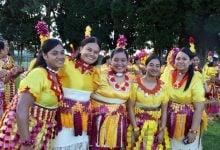NZEI Te Riu Roa responds to new edu policy and pay gap
The union says fixing the pay gap for kaiako must extend to Kōhanga Reo and welcomes wero in Māori Party education policy.

Last week, Labour joined the Green Party in including pay parity for early childhood teachers in their election pledges. The political parties’ pay parity commitment would address the pay gap for most ECE teachers, but this would not extend to Kōhanga Reo kaimahi.
The lack of fair pay and funding “has been a problem for far too long,” says Kōhanga Reo kaiako Tira Toki. “When we compare ourselves to mainstream ECE, we don’t see any differences in the workload, in the positions, in the ratios, in the licensing… all of that.”
While ECE teachers are paid up to 49% less than their primary and Kindergarten counterparts, many Kōhanga Reo kaiako are paid far less again – with some not even receiving the minimum wage.
“We need our indigenous skills and qualifications to be recognised so we are paid what we are worth”, Toki says.
NZEI Te Riu Roa President Liam Rutherford agrees. “Te Wiki o Te Reo Māori, we’re especially reminded of the significance of the work our Kōhanga Reo kaimahi do.”
“In addition to supporting the learning needs of our tamariki like any other kaiako, they have specialist cultural knowledge. Since the establishment of Kōhanga Reo these kaimahi have played a key role in passing te reo on to new generations.”
The union has also praised the wero set out in the Māori Party’s newly-released education policy.
NZEI Te Riu Roa Matua Takawaenga, Laures Park, says the union backs more support and resourcing for kaupapa Māori education, Māori approaches in mainstream education, and the teaching of Te Reo Māori.
“It’s clear that we need to turn things on their head if we are to fix the institutionally racist system that currently underserves mokopuna Māori. The policy ideas that the Māori Party has set out appear to go some way to addressing the issues, and present a clear wero to the status quo.”
“We’ve been advocating for an approach called Mōku te Ao, which is about putting Māori tamariki, whānau and whakaaro first.”
“It’s important we see ambitious ideas from political parties about how we advance both Māori approaches to education and the teaching of Te Reo Māori, particularly in Te Wiki o Te Reo Māori,” she says.
Ms Park says she’s also pleased to see a commitment to fair pay for Kōhanga Reo kaimahi.
“One of our campaigns, Te Ake Rautangi, is all about fair pay for Kōhanga Reo kaimahi, so we’re pleased to see a commitment from the Māori Party to equitable pay and recognition of indigenous qualifications.”
Earlier this year, NZEI Te Riu Roa launched Te Ake Rautangi, a campaign calling for Kōhanga Reo kaimahi to be paid in a way that recognises their value and upholds their mana.
“I mean, Kōhanga Reo is gorgeous. The mahi and the tamariki are just beautiful. But when you look at the material sides of things – we don’t have much,” says Toki.









